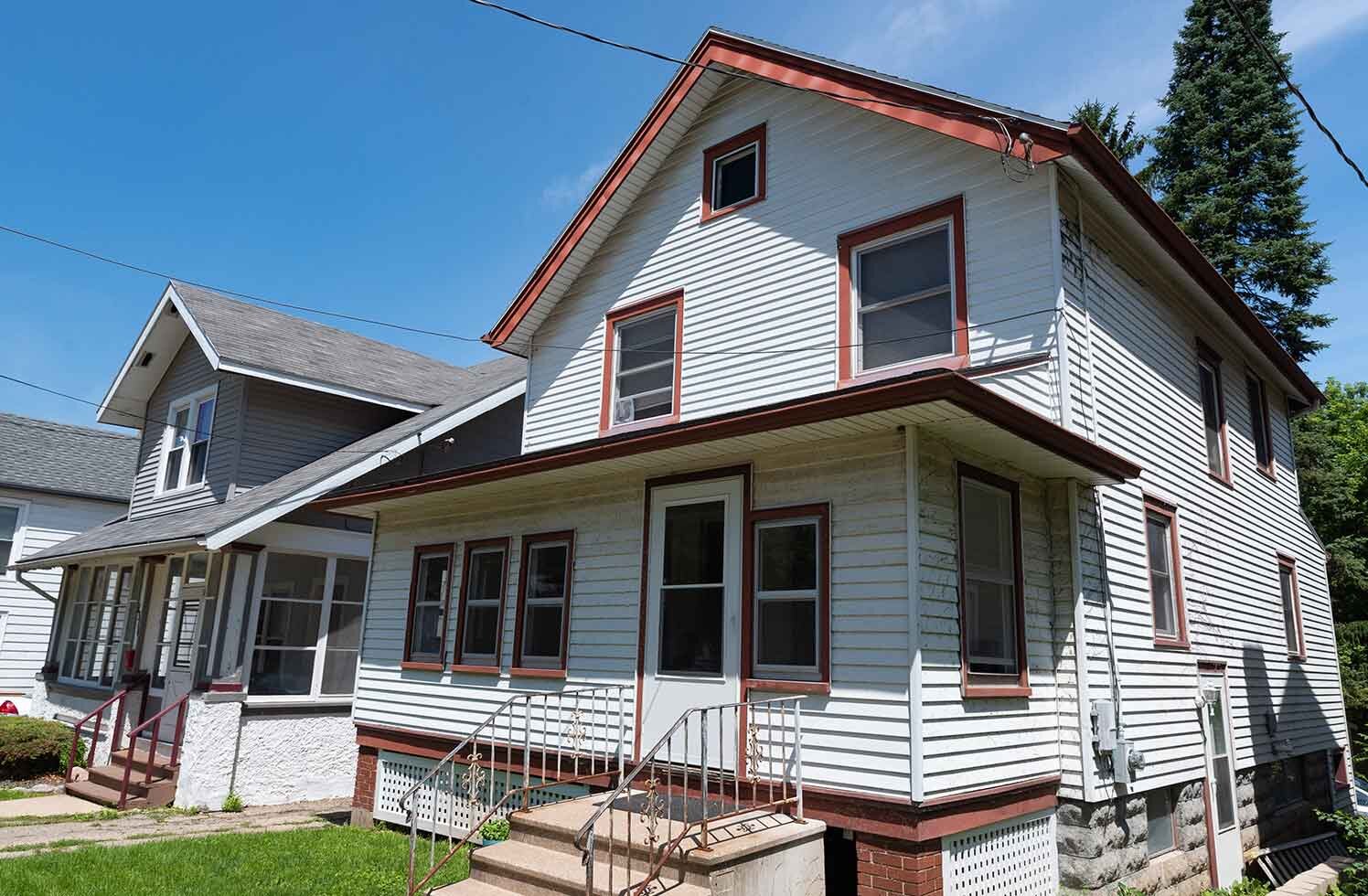How to Sell a Probate Property in Dayton: A Guide for Heirs and Executors
Probate properties are often overlooked gems for real estate investors and cash buyers—but for the person left in charge of the estate, the process of selling can feel like a legal maze. If you’re dealing with the probate process in Dayton, understanding how probate works and what’s required to sell a house in probate can help you move forward confidently and maximize value.
This article breaks down what probate is, how property sales work during probate, and how you can successfully sell a home while it’s still in probate, even with debt or disputes involved.
What Is Probate?
Probate is the legal process by which a deceased person’s assets—including real estate—are transferred to their heirs or beneficiaries. Whether the person passed with a will (testate) or without one (intestate), the estate must go through probate to be settled.
There are two main types of probate:
- Informal Probate: Usually quicker and simpler, this happens when there’s a clear will and no disputes between heirs. The court has minimal involvement.
- Formal Probate: This occurs when there’s significant debt, a contested will, or unclear heirs. It often requires court supervision for each step, including property sales.
In Dayton, where older homes and family estates are common, many properties end up in formal probate due to unclear titles or unresolved debts.
Can a House Be Sold During Probate?
Yes, you can sell a house during probate. But you need to know who has the legal authority to do so. The home can be sold by:
- The executor (named in the will),
- An administrator (appointed by the court if no will exists), or
- The court itself, if no one steps forward or the estate is heavily disputed.
Before the home is listed, the representative must typically petition the probate court for permission to sell. Once approved, the property can be sold to settle debts or distribute funds among the heirs.
What Does It Take to Sell a House in Dayton While in Probate?
If you’re trying to sell a probate property in Dayton, it’s essential to first understand the executor’s legal duties. Their primary goal is to protect and preserve the estate’s value. That often means selling the house to:
- Settle outstanding debts
- Distribute proceeds to beneficiaries
- Avoid the cost of upkeep on a vacant property
For example, imagine a homeowner passes away leaving behind $90,000 in medical and credit card debt. The house is valued at $150,000 but no liquid assets exist. To avoid foreclosure or lawsuits, the executor may be required to sell the house, pay the debts, and divide any remaining funds among the heirs.
Why Selling a Probate Home Quickly Matters
In many cases, properties stuck in probate fall into disrepair, rack up unpaid property taxes, or become a magnet for code violations. Selling quickly prevents the home from losing value and ensures creditors or tax agencies don’t seize what’s left of the estate.
In Dayton, probate sales often attract cash buyers who are willing to purchase properties as-is without demanding repairs or upgrades. This speeds up the process and minimizes stress for the executor or administrator.
When the Court Orders a Sale
In some cases, especially when the deceased didn’t leave a will and no heirs are located, the court may step in to manage the estate. The court-appointed representative will oversee the sale, and proceeds are distributed per state intestacy laws.
If you’re facing this situation in Dayton, it’s best to work with a probate-savvy real estate professional or investor who understands local regulations and can help navigate the sale with the court’s approval.
Steps for Selling a House in Probate
If you own a property in OH that is stuck in probate and you’re struggling to find a way to sell, there is hope! Depending on local and state laws, the process of selling a probate property can be completed in four steps. The first step is having an executor or administrator assigned, if there wasn’t one already assigned by the deceased.
If you are assigned as the executor (or you and the executor are in agreement on how to continue), you now have the ability to decide whether to sell the property or keep it. Whether the estate owes money to creditors or you inherited a house in another state that doesn’t make sense to keep, you can decide to sell that property and walk away. But before you put up that For Sale sign, you’ll need to have the property appraised. Once that is complete, only then can you petition the Court so that you can list the property for sale on your own (FSBO) with a trusted realtor who has experience with probate properties, or sell it directly to an investor.
Decide How to Sell the Property:

Valuation or Appraisal
First up is finding out how much that property is worth. To do this, you’ll need a reliable valuation of the land and any structures by a trusted professional, often a licensed appraiser who understands local real estate laws as they pertain to probate properties. A standard market appraisal not only estimates the current fair market value but also takes into account any unique factors related to probate sales, such as the property’s condition or legal restrictions.
In many states, the Court mandates that probate properties be sold for at least 90% of their appraised value to ensure fair market dealings and protect the interests of heirs and creditors. This requirement underscores the importance of hiring an appraiser with specific experience in probate property valuation, as an inflated or deflated appraisal could delay the sale or cause legal challenges.
Working with a professional who has expertise in probate can also help you understand potential liens, back taxes, or easements that may impact the property’s value. This knowledge ensures the appraisal is thorough and accurate, giving you a clearer picture of what to expect when selling the property in probate.

Listing the House
Once you have your appraisal, you, the executor, and/or your lawyer will need to file an intention to sell the house and other assets with the court. This formal petition not only includes the final appraisal amount but also specifies the proposed method of sale for the probate property. Common sale methods include an auction, a traditional real estate market sale, or selling directly to a cash investor specializing in probate properties. Each option has its advantages depending on how quickly the estate needs to settle debts or distribute assets.
After submitting the petition, the court will review and either approve or request additional information before granting permission to proceed with the sale. Once approved, you can officially list the property, notifying potential buyers that the probate home is available for sale.
Whether you decide to handle the sale independently, enlist an experienced probate real estate agent, or work directly with a reputable investor, it’s essential to have knowledgeable support. Professionals familiar with the probate process can help you avoid common pitfalls, ensure all legal requirements are met, and guide you through a smoother transaction, ultimately helping you maximize the estate’s value.

Offers
Whether offers fly in or trickle, eventually you’ll need to decide which offer is right for you. Evaluating your goals for the sale of a probate house is a crucial part of this decision-making process. Are you aiming for a quick closing to settle the estate’s outstanding debts and avoid further expenses? Or do you have the flexibility to wait longer in hopes of securing a higher sale price that maximizes the inheritance for the beneficiaries?
Another important factor is the condition of the property itself. If the probate home requires extensive repairs or a complete remodel, you may want to consider offers from investors or buyers experienced in handling such properties. These buyers often purchase “as-is,” sparing you the time, money, and stress of costly renovations.
By clearly understanding your priorities — whether speed, profit, or ease of sale — you can confidently evaluate incoming offers and select the best one that aligns with your specific probate property goals. This thoughtful approach ensures you’re making a decision that benefits the estate and honors the wishes of the deceased.
Knowing what goals you need to meet with the sale of the property will help you decide which offer to accept so that you can move on to the next step…

Notice of Proposed Action
Once a buyer makes an offer, they need to be informed that the sale can only be completed after the court’s confirmation. This additional step is a unique aspect of probate sales and should be clearly communicated to avoid surprises. Due to real estate disclosure laws and the legal nature of probate transactions, buyers are made aware upfront of this extended timeline. However, buyers who are inexperienced with probate properties may hesitate or even withdraw their interest because of the added waiting period.
This waiting period is often one of the main reasons probate homes are passed over in favor of more straightforward sales, even when the probate property is attractively priced to sell quickly. The court confirmation process can add several weeks or even months before a sale can close, which may discourage buyers who want a fast transaction.
On the bright side, if a buyer is willing to be patient and understands the unique requirements of a probate sale, their offer will be thoroughly reviewed by the Court. The Court then issues an order to approve the sale, ensuring the process is fair and legally binding. This court oversight protects all parties involved but requires patience and understanding from the buyer.
Knowing these probate sale timelines and communicating them clearly can help sellers set the right expectations and attract buyers who are prepared to navigate the probate sale process smoothly.

Bidding
In the case of auctions, a property in probate can be marketed as ready to sell even before the Court finalizes an Approval to Sell, which helps attract more interested bidders early in the process. Probate property auctions can generate competitive offers and potentially speed up the sale, but they come with specific legal requirements. Often, the Court itself oversees the auction process to ensure full transparency and fairness to all parties involved.
There are strict rules and guidelines governing probate auctions, including public notice requirements and minimum bid thresholds, making this method of sale generally reserved as a last resort when other sale options have failed or when the estate needs a quick resolution. After the highest bidder wins, the executor or administrator must petition the Court to formally authorize the sale of the property.
It’s important to note that any of the Heirs or beneficiaries have the right to object to the sale during this period. If objections arise, the Court may halt the sale and put the property on hold while it evaluates the concerns and determines the appropriate next steps. This can add delays and complications, so auction sales in probate require careful legal guidance to navigate successfully.
Understanding how probate auctions work and the role of Court approval can help executors, heirs, and potential buyers prepare for the complexities involved in selling probate properties through auction.

Finalization of Sale
Hopefully, the sale of that house, condo, rental property, or piece of land is a smooth and straightforward experience. Even if you experienced a few hitches along the way, once you have an offer that the Court accepts, it’s time to finalize the sale. The executor or probate lawyer will need to file a final account detailing all transactions and a petition for the final distribution of assets. This ensures that all debts, taxes, and expenses have been properly settled.
Once the Court reviews and approves this final accounting and distribution petition, the necessary title documents can be signed to officially transfer ownership and close the probate sale. This final step marks the official conclusion of the probate process for the property, allowing heirs or beneficiaries to receive their rightful share of the proceeds.
Working with professionals experienced in probate closings can help avoid delays and ensure all legal requirements are met for a smooth transfer. Properly finalizing the probate sale protects everyone involved and allows the estate to be fully settled.
Who Buys Houses in Probate?
We do! Wright Home Offer is a direct house buying company that has built our reputation on buying houses for cash with less stress and less fees. Contact us today and get a competitive cash offer for that house or property that’s stuck in probate. We buy homes in any condition. We can help you with the convoluted process of selling a house in probate, making the process faster and as stress-free as possible.
Mistakes to Avoid When Selling a Probate Property

Moving Too Quickly
When a person passes away, their family may try to move as quickly as possible to sell the property so that they have time to grieve. While this is completely understandable, moving too fast can result in financial loss or missed opportunities during the probate home sale process. Executors or administrators may rush to list the property—often at a below-market price—in an attempt to quickly settle outstanding debts, especially those accruing high-interest charges like credit cards or medical bills.
Sometimes, the urgency stems from the condition of the house. If the property is outdated, damaged, or requires major upgrades, the beneficiaries may not have the financial resources—or the desire—to fund necessary repairs. As a result, they may choose to sell the probate property as-is, undervaluing it to attract cash buyers who are willing to take on the project.
While this approach can help speed up the sale, it often leaves money on the table. Selling too quickly without understanding the home’s actual market value, or without working with a real estate professional experienced in probate, may lead to avoidable losses. It’s always worth consulting with a probate real estate agent or investor who can help you balance timing with value—ensuring a faster, smoother sale without sacrificing your bottom line.

Not Completing a Real Estate Disclosure
Depending on what state you live in, Real Estate Disclosure laws can be almost as tricky as the probate process! These laws outline a list of known issues—such as lead paint, asbestos, water damage, pest infestations, or foundational cracks—that must be disclosed to buyers before closing on the property. Failing to disclose certain defects can result in costly legal consequences, making this step especially important when selling a house through probate.
Most states require sellers and their agents to disclose in writing “material defects” about the home. According to the National Association of Certified Home Inspectors, material defects are “…a specific issue with a system or component of a residential property that may have a significant, adverse impact on the value of the property, or that poses an unreasonable risk to people. The fact that a system or component is near, at or beyond the end of its normal useful life is not, in itself, a material defect.”
Experienced real estate agents are great at navigating these tricky waters, especially when dealing with traditional home sales—but what if you inherited a house you never lived in? How would you know what to disclose? That’s where probate gets complicated. In many states, the executor, the person legally responsible for selling the property, and even the real estate agent may be exempt from completing standard disclosure forms. This is because the individual handling the sale never occupied the home and therefore cannot reasonably be expected to report issues they are unaware of.
That said, even if your state offers an exemption for probate properties, you still want to proceed with caution. If you’re unsure of your local real estate disclosure laws, consult a real estate attorney or a probate real estate expert who can guide you through your legal obligations.
If you’re looking for a faster, simpler solution, consider selling your property directly to an investor who is experienced in buying as-is probate homes. These buyers typically accept properties without full disclosures, assuming the risk so you don’t have to. It’s a reliable option if you’re dealing with uncertainty about the property’s condition or are trying to settle the estate quickly.
You do have options—and understanding disclosure laws is a smart first step to protecting yourself during the sale.

Failing to Hire a Lawyer
We cannot emphasize this enough — hiring a knowledgeable probate real estate attorney is one of the most important steps in successfully navigating the probate process. A skilled lawyer with experience in estate law can help you move through the necessary legal channels much more efficiently than trying to manage everything on your own. From petitioning the probate court to overseeing property distribution, a probate attorney ensures no crucial step is missed.
Not only will they help you legally list and sell the probate property, but they’ll also offer advice on how to handle complicated matters like creditor claims, tax responsibilities, and multiple heirs. Even a consultation with an estate attorney can save you time, reduce stress, and prevent costly mistakes that could delay the sale. If you’re feeling overwhelmed or unsure about what to do next, connecting with a real estate lawyer who specializes in probate can bring much-needed clarity and peace of mind during a difficult time.al challenges from heirs. A good attorney will help you navigate those landmines so you can sell the property with confidence—and peace of mind.

Waiting Too Long to Start the Probate Process
When someone loses a loved one, grief may cause us to put everything on hold while we process the loss of the deceased in our life. However, delaying the probate process can lead to unintended financial consequences. The estate property doesn’t pause its financial obligations—property taxes, homeowner’s insurance, utility bills, and mortgage payments continue to accumulate whether the home is occupied or not. If the home falls into disrepair or becomes vacant, you may also face issues with code violations or vandalism.
The longer the estate sits unmanaged, the higher the carrying costs become, which can significantly reduce the value of the estate’s assets. In some cases, this can even lead to foreclosure if the mortgage goes unpaid for too long. Acting promptly and initiating probate early can help preserve equity in the home and protect your inheritance. If you’re unsure where to begin, consulting with a probate attorney or a local real estate expert who specializes in selling inherited property can help you get started quickly and avoid unnecessary financial stress.
Who Buys Houses in Probate?
We do! Wright Home Offer is a direct house buying company that has built our reputation on buying houses for cash with less stress and less fees. Contact us today and get a competitive cash offer for that house or property that’s stuck in probate. We buy homes in any condition. We can help you with the convoluted process of selling a house in probate, making the process faster and as stress-free as possible.

